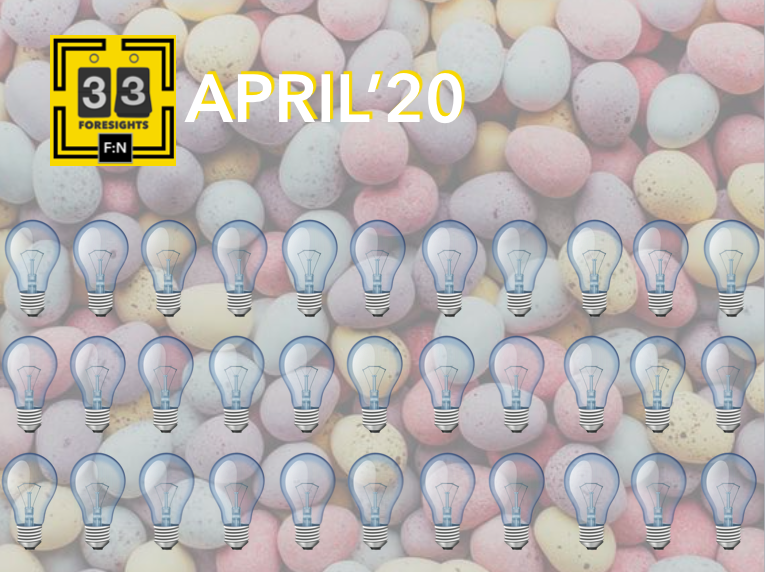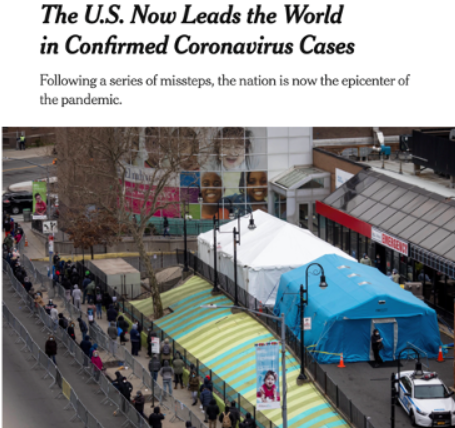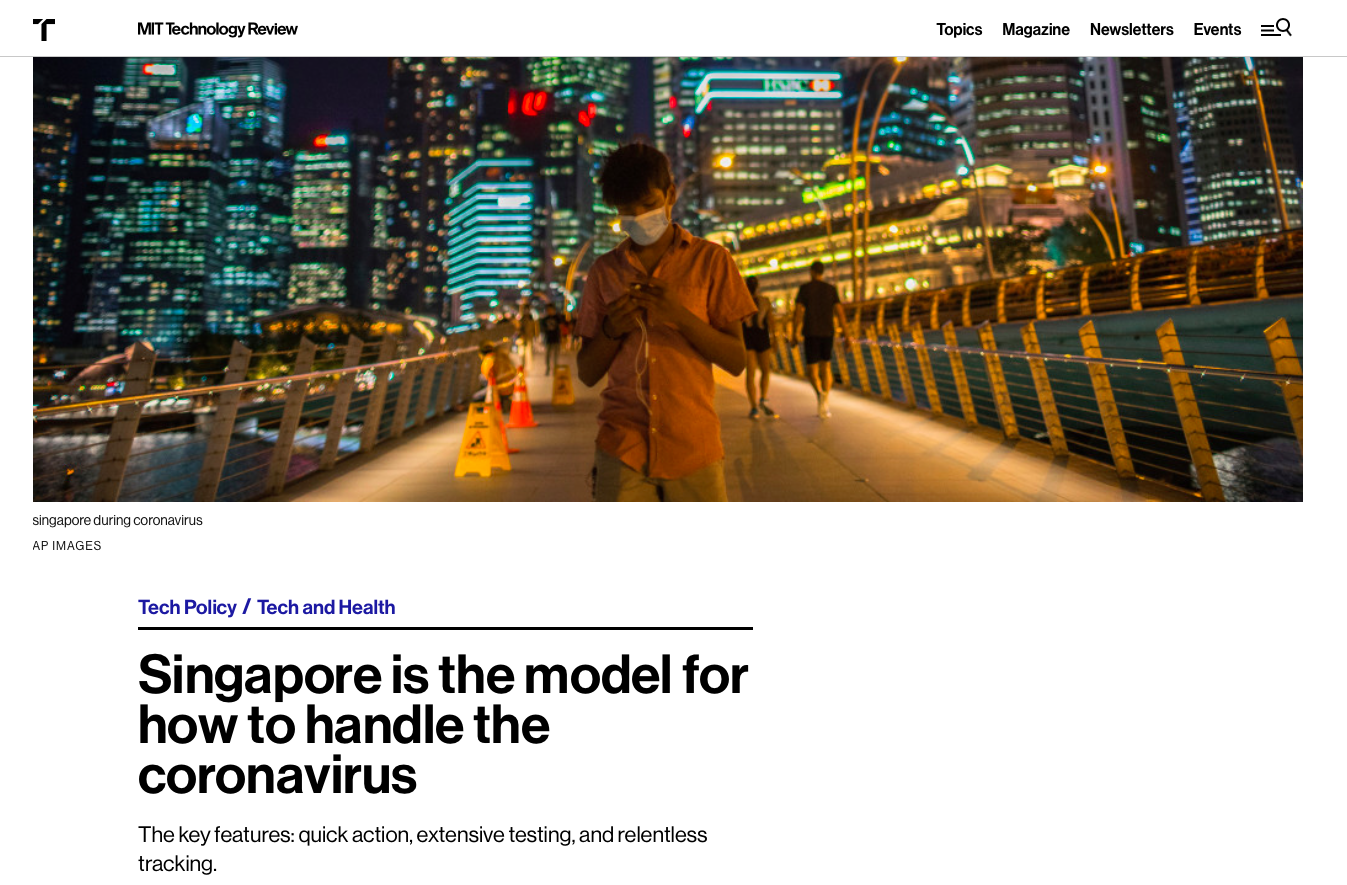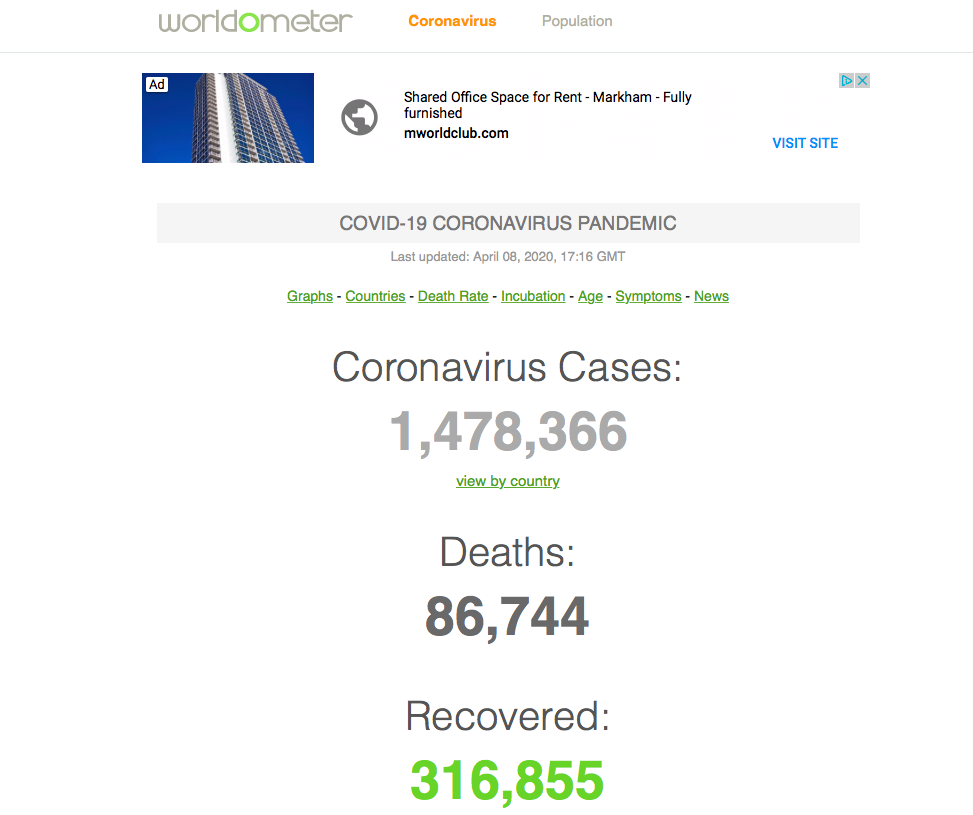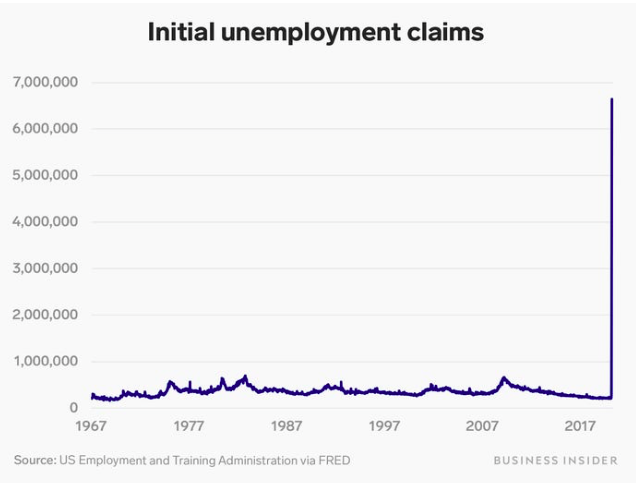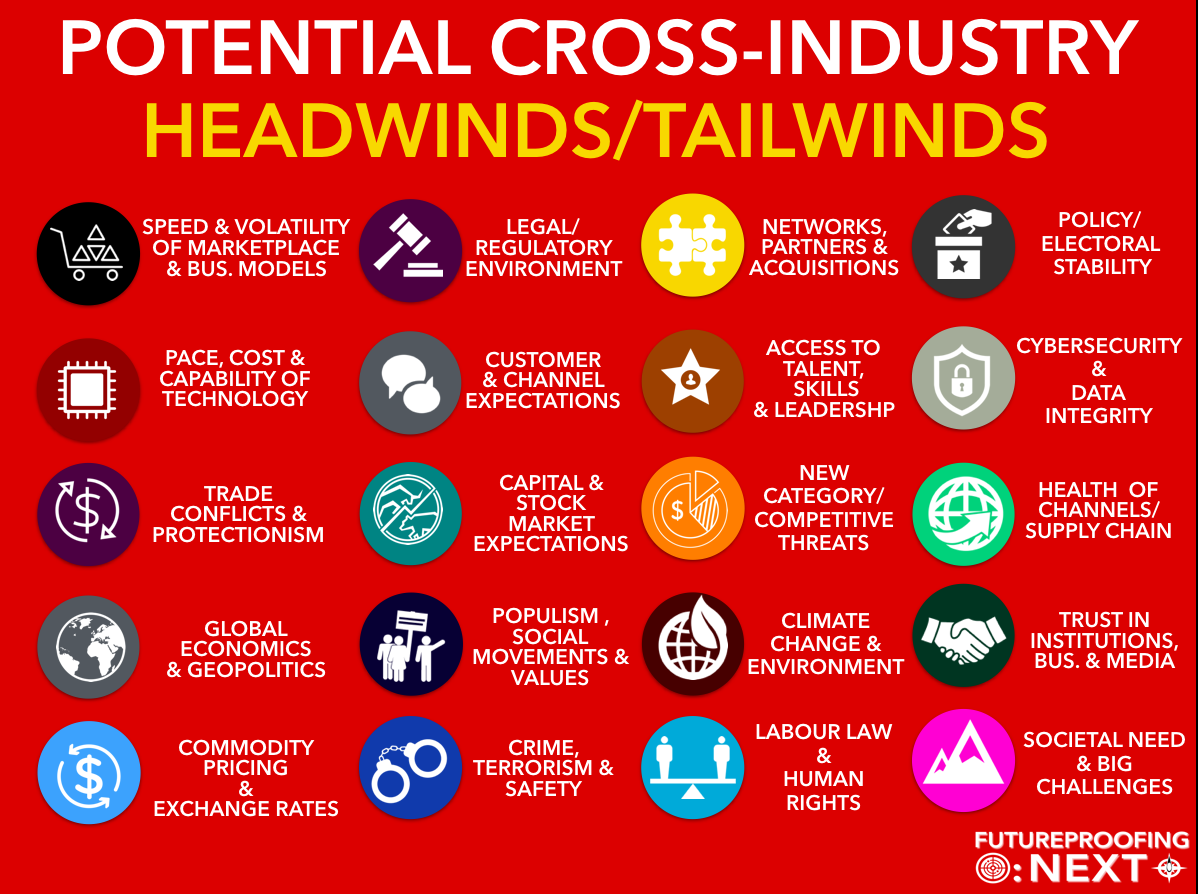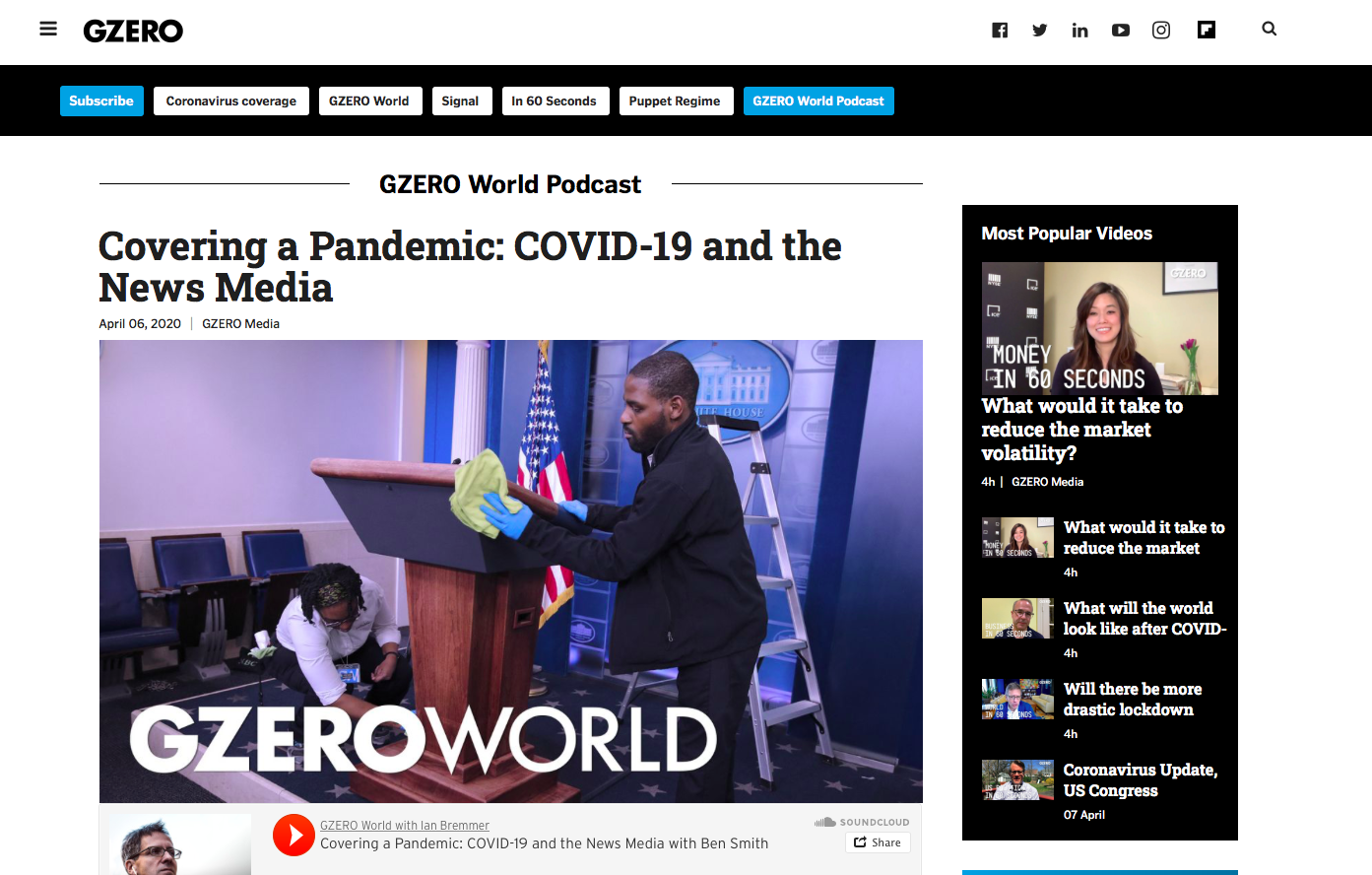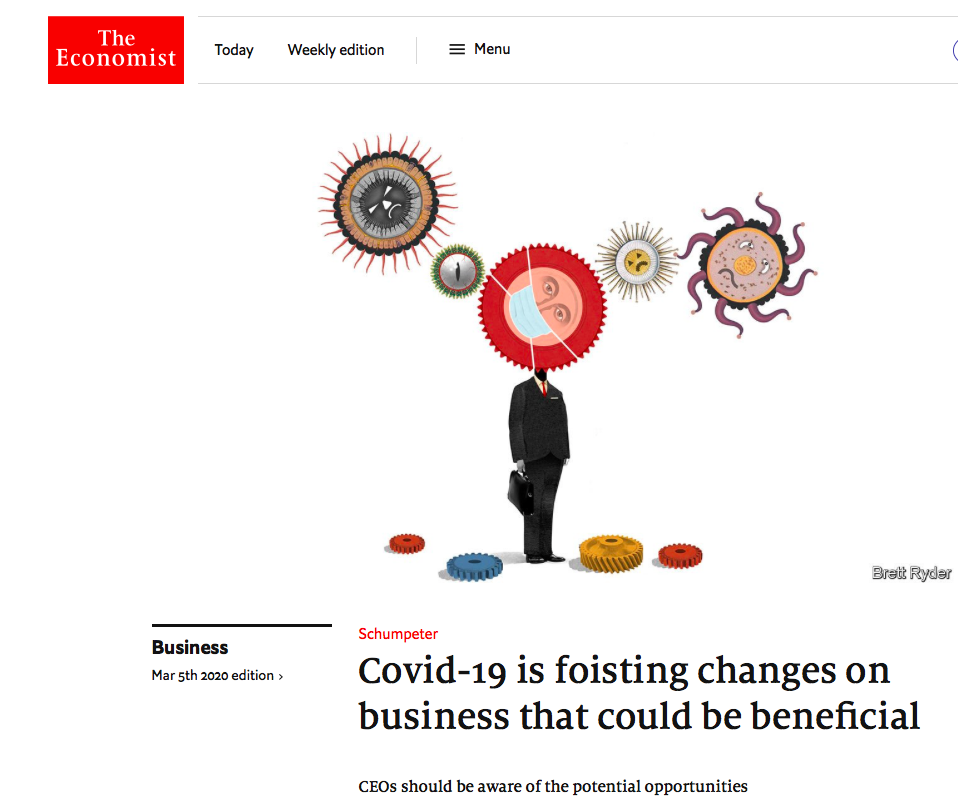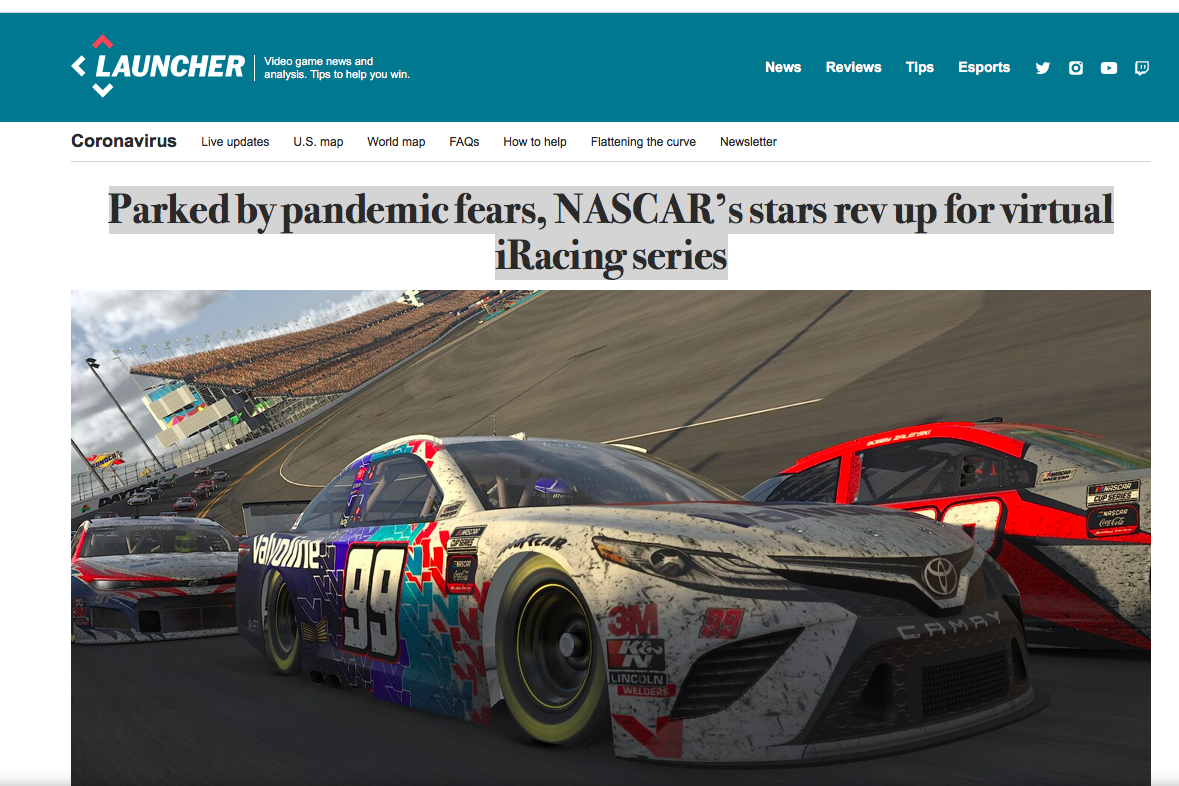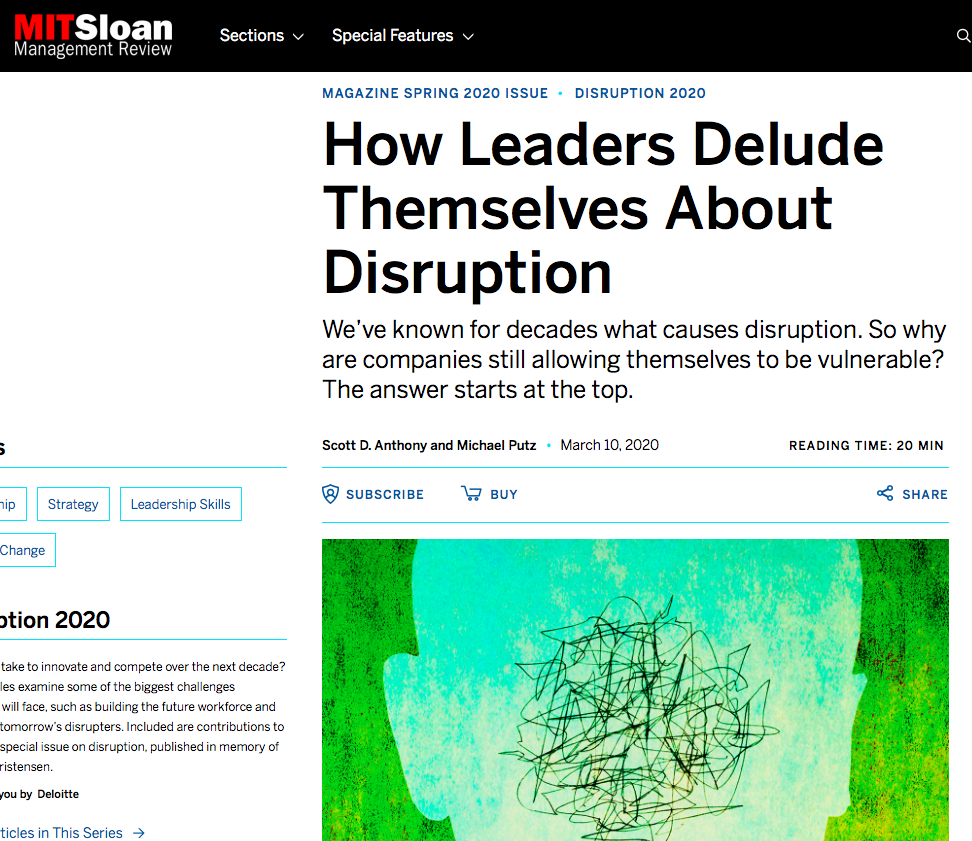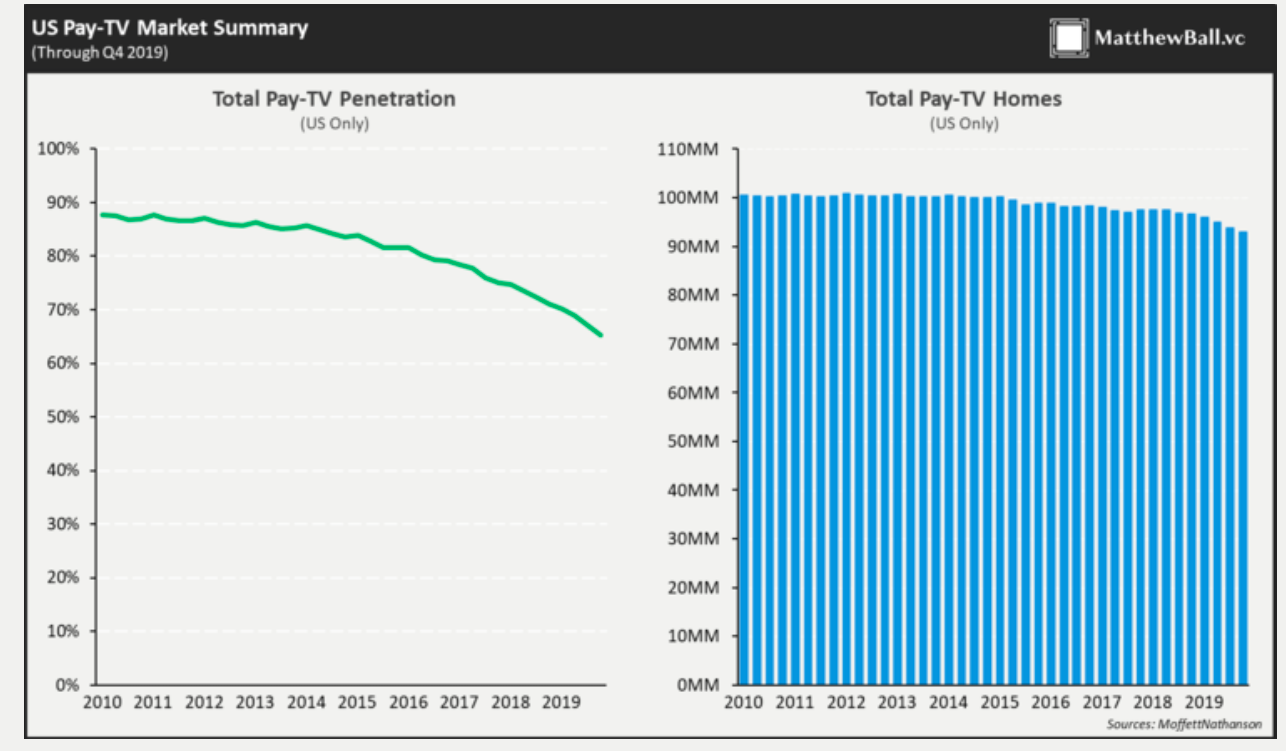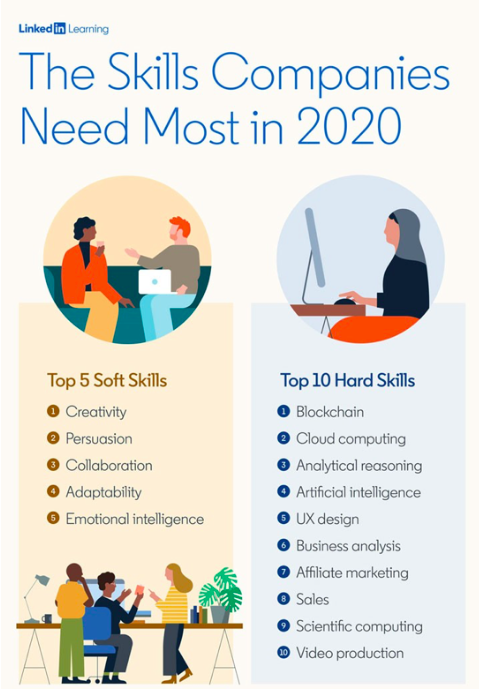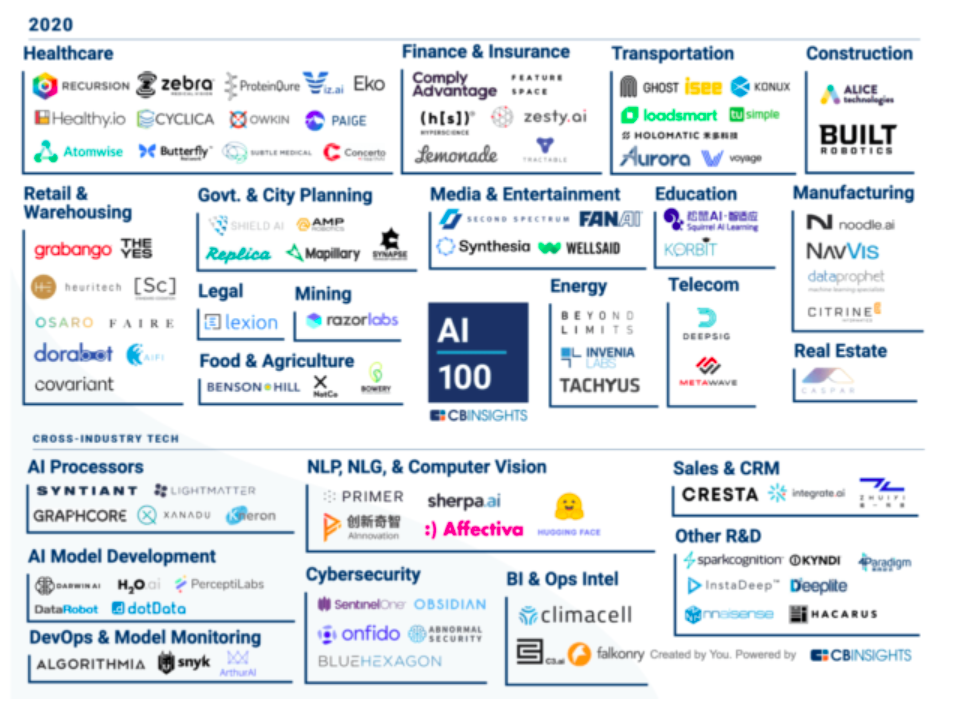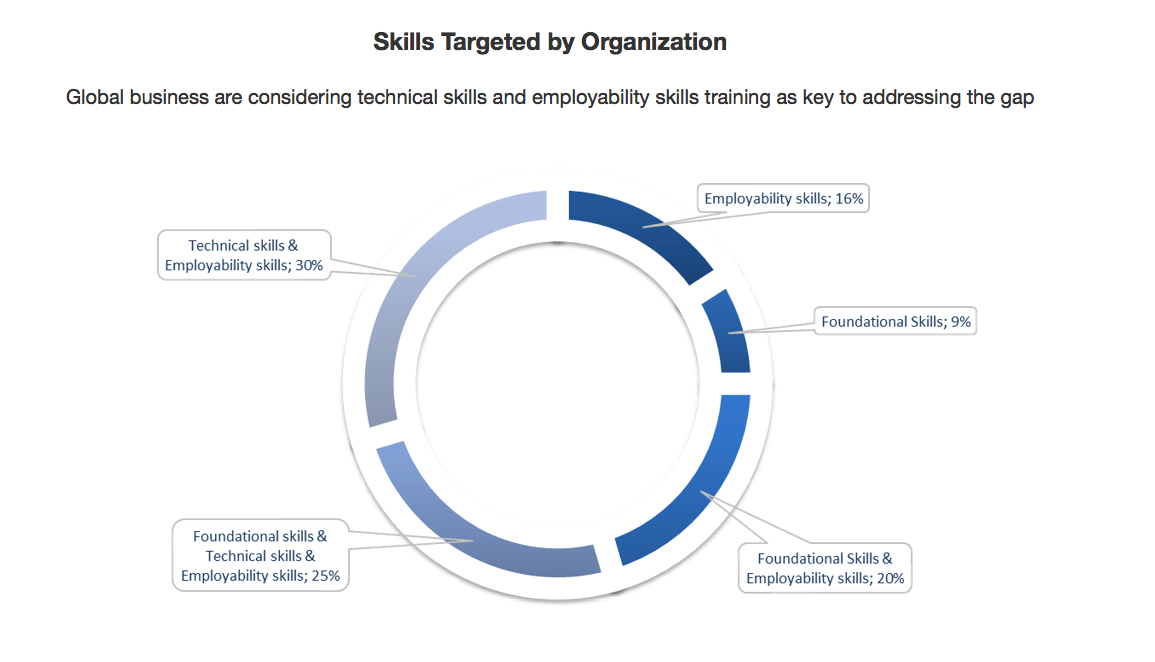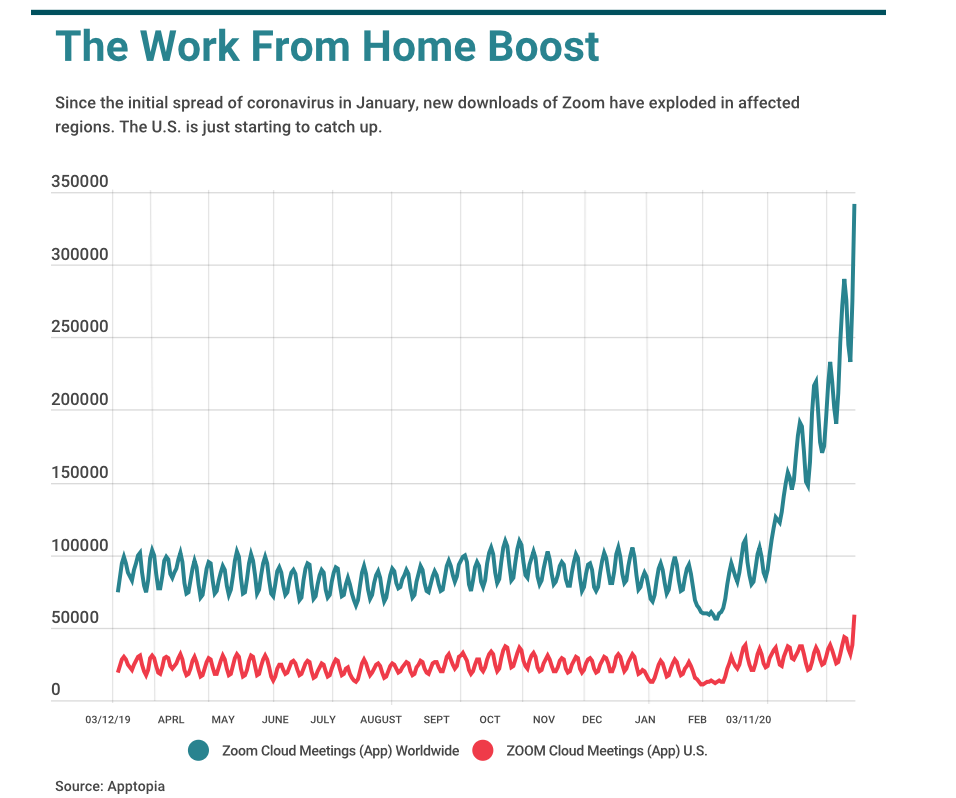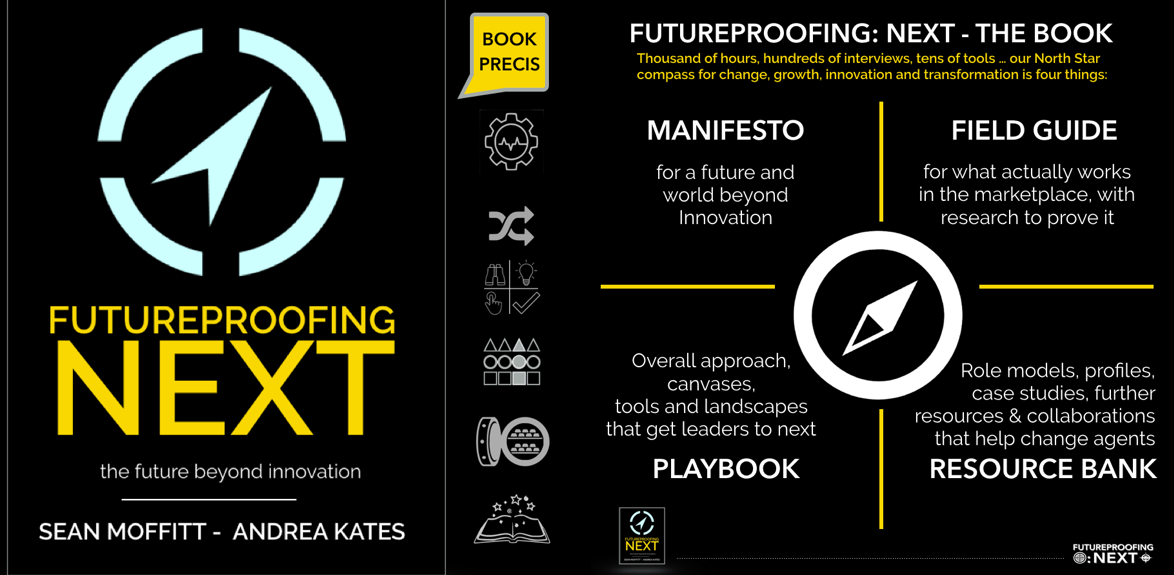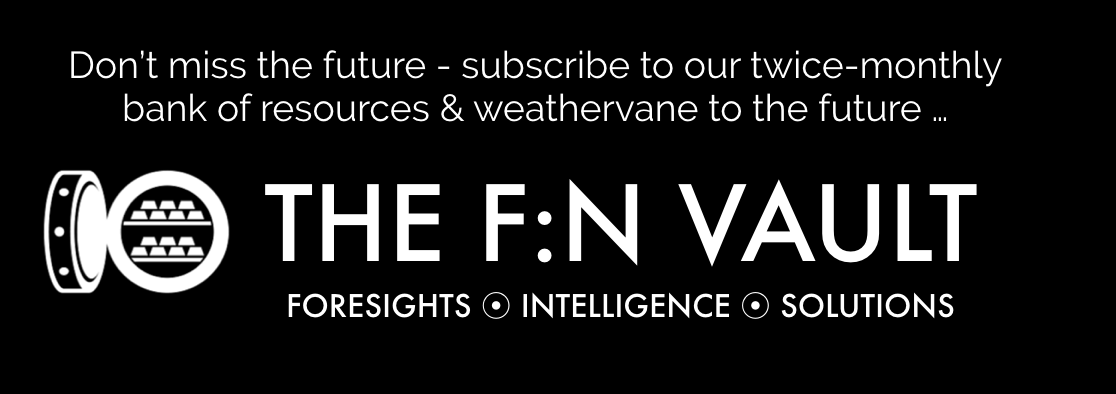March 2020 was an unprecedented month for the world. COVID-19 hit Asia and Europe late 2019 and early 2020. By March, it had reached the level of a global pandemic.
“Social distancing” came to the forefront as a strategy that had been tested in Wuhan, China and proved to be effective. However, the adoption of that method at scale on a global basis proved vexing as government leaders debated the tradeoffs between public health versus the economic impact of businesses needing to move indoors or shut down to accommodate the risk. We watched as country by country and leader by leader different decisions were made, with widely varied outcomes. At the time of this report, New York had outpaced all of China in its COVID-19 patients.
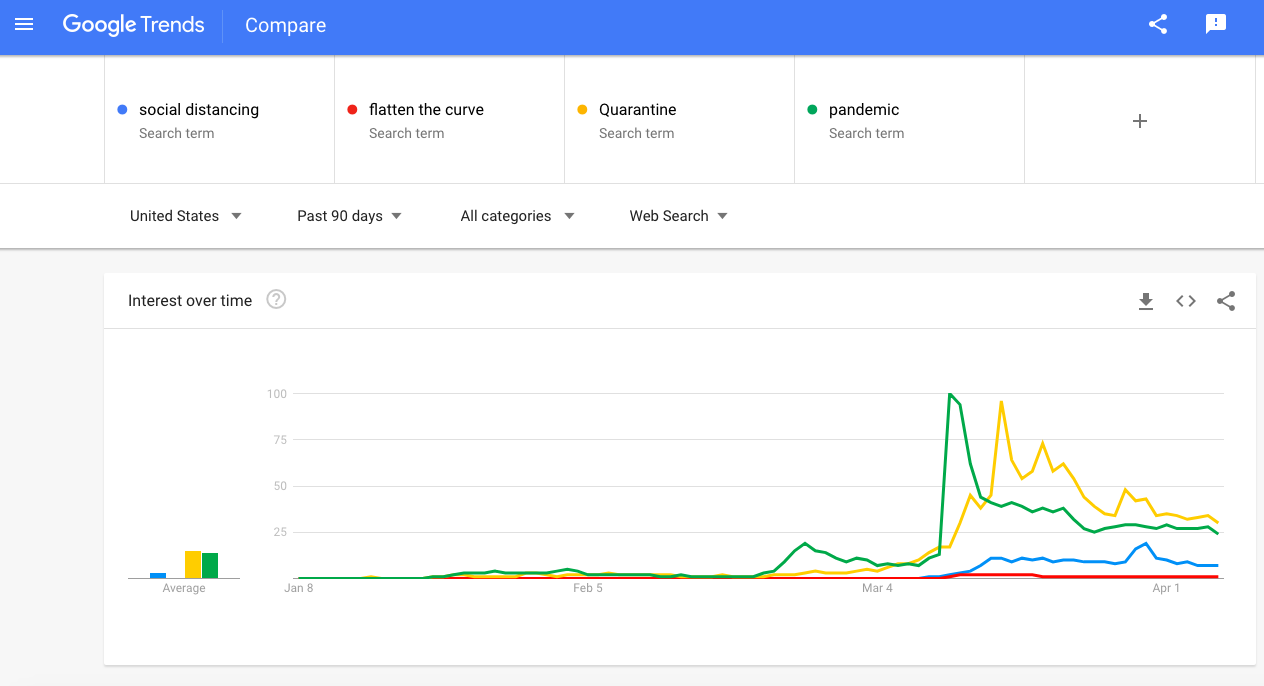
The ripple effect is palpable and dramatic. Live sports, restaurants, concerts, travel: immediate shutdowns and slowdowns. Beyond the impact on the obvious industries, we know that the impact on countries, citizens, customers, consumers, partners…well, people…will be far-reaching in scope and scale. Many companies and communities will refer to their business cycles as pre-COVID and post-COVID.
At Futureproofing : Next we specialize in data, research, early signs of trends, and most important, how leaders can prepare and respond and how organizations can bring those ideas to scale. We are struck by the important lessons associated with the news in the month of April 2020 as we hopefully fallten the curve, and offer an array of articles and resources to inspire us to bring our best futureproofing leadership to our game.
The Top Three Future Foresights:
We trade articles with each other each month, these were three of our faves.
#1 The U.S. Now Leads the World in the Pandemic Outbreak (NY Times)
“As of March 26, Scientists warned that the United States someday would become the country hardest hit by the coronavirus pandemic. That moment arrived on Thursday.
In the United States, at least 81,321 people are known to have been infected with the coronavirus, including more than 1,000 deaths — more cases than China, Italy or any other country has seen, according to data gathered by The New York Times.”
#2 Singapore is the model on how to handle the pandemic virus (MIT Technology Review / Spencer Wells )
“Singapore was hit early, as one of China’s key trading partners. Within a few weeks of the first official notice of “Wuhan flu,” it had a dozen cases. But it very quickly realized that this was more than the seasonal flu, and took rapid action. Primed by experience with the SARS virus of 2002-3, Singapore began carefully tracking cases to find the commonalities that linked them. Within a day, sometimes two, of a new case being detected, the authorities were able to piece together the complex chain of transmission from one person to another, like Sherlock Holmes with a database. As of February, everyone entering a government or corporate building in Singapore had to provide contact details to expedite the process.
It’s not simply the ability to detect the cases and explain why they happened that makes Singapore such a role model in this epidemic; nucleic acid testing kits were rapidly developed and deployed to ports of entry. Within three hours, while individuals are quarantined on-site, officials can confirm whether or not they are infected with the virus before allowing them to enter.”
#3 What's Up/What's Down - 50 Stats on COVID-19 Industry Imapct (FUTUREPROOFING : NEXT / SEAN MOFFITT)
THE LATEST ON WHAT’S UP, WHAT’S DOWN AND WHAT’S SIDEWAYS BUT DON’T BLINK
Massive stats global roundup on industry impact due to Covid-19 / Coronavirus (various sources) :
RETAIL SALES WINNERS
– Supermarkets +22% in sales
– Corner shops/convenience stores +30% in sales
NEW AD VISUALS
– Images/copy of sports/fitness and electronics in ads +3X
– YouTube – +6.5-20X during crisis weeks in affected countries
– TV news + 69% in viewership
– Drama shows +35% in viewership
Top Change Infographics:
The world is a visual place. We sparked to these three visuals for what they contributed to futureproofing and understanding what’s next.
Top Futureproofing New Contributions:
We love connecting and collaborating with change agents, thought leaders and contributors to how we can change, transform, innovate and grow better. Here’s what we found this month:
Top Recent Gzero World Media Podcast Episodes:
Coveringa Pandemic in the COVID-19 Era with Ian Bremmer
What would it take to reduce market volatility? with Betty Liu
What will the world look like after COVID-19? with Kevin Sneader
The Other 30 Headlines:
Our other key thirty foresight headlines for the month below. All wonderful, provocative and well thought out, and covering off the full futureproofing universe. Click on the bar to expand our summary or click again to get directly to the source link.
#4 JAPAN TAKING DOWN 2020 OLYMPICS SIGNAGE ... Sad (TMZ Sports)
“You know it’s real when the signs come down …
Workers in Japan began taking down banners for the Olympic torch relay Thursday morning — and it’s still unclear when they’ll go back up!
As we previously reported, Olympic officials — along with Japan prime minister Shinzo Abe — decided to finally postpone the 2020 Tokyo Games due to the coronavirus pandemic.
The torch relay event — set to begin in Fukushima — was supposed to kick off a series of high profile events in a ramp-up to the Games, originally set to begin in July.
But, that’s been scrapped — and while organizers try to figure out a new date for the Games, the torch will remain on display in Japan in a lantern.”
#5 The Weekend Pitch (Pitchbook/ Kevin Dowd)
“There were of course immediate impacts of the growing outbreak for the companies and investors that populate the private markets. Buyout giant KKR temporarily closed offices after some employees tested positive for the virus, and Bain Capital is believed to have done the same. Venture firms intensified preparations for a recession. Private equity stocks tumbled. The Bill & Melinda Gates Foundation teamed with Wellcome and Mastercard to launch a $125 million fund that will invest in companies working on coronavirus treatments. Everyone who can is now working remotely—or else they really, really should be.
And more will be to come, because this pandemic probably isn’t going anywhere soon. Experts believe 200 million Americans could be infected and 1.5 million could die during the outbreak, and that’s not even the highest end of their estimates. “The bottom line: It is going to get worse,” Dr. Anthony Fauci, the director of the National Institute of Allergy and Infectious Diseases, said this week in testimony before Congress. “We must be much more serious as a country about what we might expect.”
#6 Lesson for start-ups: Stop trying to be unicorn, be a camel instead (Irish Times/Frank Dillon)
“Silicon Valley’s traditional hold on the global innovation agenda is increasingly being challenged by so-called frontier innovation, where entrepreneurs in more challenged environments are taking a different and arguably better approach. That’s the view of venture capitalist, academic and author Alex Lazarow, who argues that Silicon Valley needs a re-fresh.
“Entrepreneurs in Dublin, Detroit and Bangalore have more in common with the best entrepreneurs in Sao Paulo than they have with the best entrepreneurs in Silicon Valley,” he tells The Irish Times.
Silicon Valley’s oft-celebrated fast winners are matched by an ever-greater number of fast losers”
#7 How to Do Strategic Planning Like a Futurist (The Economist/Schumpeter)
“In February 2014 a strike on the London Underground offered management theorists a lesson in resilience and adaptation. Because the shutdown closed some but not all Tube lines, frustrated Londoners were forced to rethink their commutes to and from work. Researchers at Oxford and Cambridge universities subsequently found that around 5% of passengers stuck to their new itineraries even after normal service resumed. The long-term economic gains of one in 20 travellers adopting new and improved ways to get to work turned out to be greater than the short-term costs of the disruption.
The global covid-19 outbreak presents a far greater challenge to the corporate world than striking transport workers. Profit warnings are spreading nearly as fast as the disease. Analysts at Goldman Sachs, a bank, estimate that earnings growth for firms in the s&p 500 index could grind to a halt. Gauges of business activity, such as purchasing managers’ indices, have cratered in Asia and are expected to weaken elsewhere as the coronavirus crosses more borders.”
#8 Farmers Fight John Deere Over Who Gets to Fix an $800,000 Tractor (Bloomberg Busiensssweek/Waldman & Mulvaney)
“It’s Husker Harvest Days, Nebraska’s biggest agricultural trade show, and Kevin Kenney is working the pavilions. The engineer, inventor, and inveterate manure-stirrer is trying to be discreet. He has allies here among the sellers and auctioneers of used tractors and aftermarket parts. There are farmers, mechanics, and the odd politician or two who embrace him. But enemies lurk everywhere.
Kenney leads a grassroots campaign in the heart of the heartland to restore a fundamental right most people don’t realize they’ve lost—the right to repair their own farm equipment. By sheer dint of personal passion, he’s taking on John Deere and the other global equipment manufacturers in a bid to preserve mechanical skills on the American farm. Big Tractor says farmers have no right to access the copyrighted software that controls every facet of today’s equipment, even to repair their own machines. That’s the exclusive domain of authorized dealerships. Kenney says the software barriers create corporate monopolies—and destroy the agrarian ethos of resiliency and self-reliance.
“The spirit of the right-to-repair is the birthright we all share as a hot-rodding nation.”
#9 McKinsey study of 1,700 companies reveals CEOs don’t understand design leadership at all (Fast Company/ Mark Wilson )
“Design has finally gotten its due. For years, designers complained that they needed to be brought into the C-suite to make strategic decisions alongside CEOs and CMOs. That has happened over the past five years, as 40 of the top 100 companies hired a chief design officer (CDO).
But now there’s a new problem. According to a massive new study conducted by McKinsey, just about nobody knows what a chief design officer is actually supposed to do. McKinsey analyzed 1,700 companies and conducted interviews with 200 senior design leaders and 100 CEOs. The key discovery? A few companies have empowered design leaders in the C-suite (and previous research shows that design-led companies have 32% more revenue than other companies). But at most companies, heads of design are ineffectively, and confusingly, integrated into executive teams.”
#10 Parked by pandemic fears, NASCAR’s stars rev up for virtual iRacing series (Washington Post / Liz Clarke)
“Though NASCAR has idled since March 8 because of the coronavirus pandemic, three-time and defending Daytona 500 champion Denny Hamlin was up until 1:30 a.m. Friday trying to figure out how to pare a fraction of a second off his lap times.
And Dale Earnhardt Jr., who retired from full-time racing in 2017, has been back behind the wheel in his home’s computer room, getting up to speed once again with the layout of Homestead-Miami Speedway.
With stock-car racing’s elite series parked until at least May 9, Hamlin, Earnhardt and 32 fellow racers will strap in Sunday — at least, in a virtual sense — to compete in the inaugural eNASCAR iRacing Pro Invitational Series.
Ginned up by NASCAR and iRacing executives to feed fans’ appetite for stock-car racing and give drivers something to do amid the hiatus, the idea of a simulated racing series with top drivers got immediate buy-in.”
#11 ‘Hell is coming’ — Bill Ackman has dire warning for Trump, CEOs if drastic measures aren’t taken now (CNBC/Yun Li)
“Investor Bill Ackman urged President Donald Trump and corporate America in an impassioned plea on CNBC to shut down the country for 30 days to contain the fast-spreading coronavirus, calling it the only option to rescue the economy.
“What’s scaring the American people and corporate America now is the gradual rollout,” Ackman told Scott Wapner on “Halftime Report” on Wednesday. “We need to shut it down now. … This is the only answer.”
“America will end as we know it. I’m sorry to say so, unless we take this option,” he said. Ackman added that if Trump saves the country from the coronavirus, he will get reelected in November.
Ackman urged U.S. companies to stop their buyback programs because “hell is coming.” The biggest U.S. banks have already halted repurchasing stocks to put their capital to use helping consumers and businesses.”
#12 Household Cleaning Tools Market to See Major Growth by 2025: Henkel, Procter & Gamble, 3M, Reckitt Benckiser (SBWIRE)
“Global Household Cleaning Tools Market study with in-depth overview, describing about the Product / Industry Scope and elaborates market outlook and status to 2025. Global Household Cleaning Tools Market explores effective study on varied sections of Industry like opportunities, size, growth, technology, demand and trend of high leading players. It also provides market key statistics on the status of manufacturers, a valuable source of guidance, direction for companies and individuals interested in the industry.
The competition is expected to become even more intense in the coming years with the entry of several new players in the market. To help clients improve their revenue shares in the market, this research study provides an in-depth analysis of the market’s competitive landscape and offers information on the products offered by various leading companies. Additionally, this Household Cleaning Tools market analysis report suggests strategies Vendors can follow and recommends key areas they should focus on, in order to take maximum benefits of growth opportunities.”
#13 How Leaders Delude Themselves About Disruption (MIT Sloan/Anthony & Putz)
“Ever since the 1997 publication of The Innovator’s Dilemma, researchers, management experts, and businesspeople have discussed, dissected, and debated Clayton Christensen’s Theory of Disruptive Innovation. By now, the arc of disruption is well established: We know how disrupters enter the market, and we know how incumbents typically bungle their responses to such seemingly insignificant competition. Numerous books and articles have offered to solve the dilemma of disruption, including Christensen’s own The Innovator’s Solution (a 2003 book coauthored with Michael Raynor), which suggests that leaders who understand how disruption transpires can inoculate themselves against the threats and seize the opportunities.
Yet, despite so much insight and advice, the dilemma persists: 63% of companies are currently experiencing disruption, and 44% are highly susceptible to it, according to research by Accenture.1 And in a thorough analysis of more than 1,500 publicly listed companies, growth strategy consultancy Innosight found that only 52 of them, about 3% of the sample set, had made material progress in strategically transforming their organizations.2 The default positions, it seems, are to squeeze extra points from profit margins, search for companies to acquire, or simply pay lip service to innovation by setting up token incubators or having executives wear jeans and the occasional hoodie.”
#14 Why Lean Startup Training is Not Enough (Forbes / Tendayi Viki)
“The Lean Startup began as a grassroots movement that took root within the startup ecosystem. Over the last decade, the movement has developed a powerful toolbox of techniques and methods that help innovators navigate their way towards sustainably profitable business models. Noting the success of the movement within startups, leaders in large companies have begun to take an interest in how they can bring this toolbox into their organizations.”
#15 10 Disruptive Trends That Are Impacting The Insurance Industry (Risk & Insurance)
“As we move into a new decade, several risk trends are starting to emerge that could potentially disrupt the insurance industry.”
#16 The End of Pay TV (Matthew Ball)
“For years, the question of Pay-TV has not been “If” it will decline but “how fast?” and “to what low?” And one of the interesting things about this exercise is how hard it was to shrink the 100MM+ households that had a Pay-TV service in 2009/2010 (the peak, with roughly 90% penetration) down to something like 50MM or 60MM or even 70MM. Even quintupling the rate of cord cutting wouldn’t get you there over any reasonable forecast period (i.e. < 5 years).
Part of the challenge is that the US has spent the past ten years adding more than 1MM households per year. Their adoption of Pay-TV was well below the penetration rate (which fell from 88% to 75%) among existing homes (showing a generational difference), but these additions still offset much of the overall decline. But even if none of these households had subscribed to Pay-TV, we still wouldn’t be on pace to fall below 75MM homes until the mid-2020s.”
#17 Vietnam May Ban Widlife Trade to Mitigate Coronavirus (Live Kindly/Kat Snith )
“Vietnam may soon ban the wildlife trade to control the coronavirus disease 2019 (COVID-19).
Prime Minister Nguyen Phuc requested that the Ministry of Agriculture and Rural Development “quickly” draft a directive to ban the wildlife trade on Sunday. The ministry is to submit it to the government no later than April 1.
The directive follows pressure from 14 conservationist nonprofits, which submitted an open letter to the prime minister last February. This includes the World Wildlife Fund (WFF), Animals Asia Foundation, TRAFFIC, Save Vietnam Wildlife, Wildlife Conservation Society, and Pan Nature, according to VnExpress International.
The Vietnam Administration of Forestry ordered provincial authorities to take measures to control the wildlife trade in late January. However, the groups say that the government should take “more concrete action.”
#18 José Andrés Is Closing His DC-Area Restaurants, Setting Up Community Kitchens (NBC Washington / Anisa Holmes)
“Renowned Spanish-American chef José Andrés announced on Sunday that he would shut down all of his restaurants in the Washington, D.C., area.
The restaurants, including Oyamel and Zaytinya, will be closed until further notice. Some of his restaurants will be transformed into community kitchens to offer lunches for those in need of a meal, Andrés said on Twitter.
“The community kitchens will operate out of the restaurants’ side doors with a limited number of volunteers from 12 – 5 pm daily beginning Tuesday, March 17, offering only takeout service. All restaurant employees will be provided with paid leave and current health benefits for at least the first two weeks,” Andrés wrote in a statement.”
#19 The Most In-Demand Hard & Soft Skills of 2020 (Linkedin / Bruce Anderson )
“Recruiters have a front-row seat to the ever-changing mix of skills most prized by the business world. Understanding what those skills are early on can give you a leg up on the competition. And while the soft skills valued by companies tend to change gradually, the most sought-after hard skills evolve lickety-split, pushed largely by the relentless transformation of modern technology.
Last year, cloud computing, artificial intelligence, and analytical reasoning led LinkedIn’s global list of the most in-demand hard skills. They’re all on the list again this year, but a skill we weren’t even looking at a year ago — blockchain — tops the list of most in-demand hard skills for 2020.”
#20 Inside the Story of How H-E-B Planned for the Pandemic (Texas Monthly / Solomon & Forbes )
“The grocer started communicating with Chinese counterparts in January and was running tabletop simulations a few weeks later. (But nothing prepared it for the rush on toilet paper.)”
#21: Coronavirus response must be ‘never again (Financial Times / Peter Sands)
“Twenty-two months after I took charge of Standard Chartered, one of the world’s largest international banks, Lehman Brothers collapsed, triggering the 2008 financial crisis. Some 22 months after I moved to the Global Fund to Fight Aids, Tuberculosis and Malaria, a new strain of coronavirus emerged in Wuhan, China. My friends have asked me to warn them if I switch fields again.
The early response to the disease known as Covid-19 feels eerily reminiscent of the lead in to Lehman’s fall. We are seeing a weird mix of panic and denial; business leaders looking like rabbits in headlights as their share prices plummet; and a potpourri of uncoordinated, inward-looking interventions across different countries.
Although it didn’t feel that way at the time, Lehman’s bankruptcy probably saved the global financial system. By bringing the world to the brink, the collapse catalysed unprecedented action by governments, central banks and international financial institutions. It dispelled any illusion we could somehow muddle through. The global financial system would need to be not just saved, but redesigned.”
#22 3 Seattle companies make CB Insights’ list of world’s most promising AI startups (GEEKWIRE/TAYLOR SOPER)
CB Insights released its annual list of 100 most promising artificial intelligence startups in the world and three Seattle-area companies made the cut. They include:
Algorithmia: Founded in 2013, the Seattle startup accelerates AI adoption from months to days and hours, helping customers including Google, Vistaprint, the United Nations, and others. Algorithmia raised a $25 million Series B investment round last year and is ranked No. 101 on the GeekWire 200. The company is led by former Microsoft employee Diego Oppenheimer, a finalist for Startup CEO of the Year at this year’s GeekWire Awards.
Lexion: This spinout from the Allen Institute for Artificial Intelligence (AI2) has come up with a way for in-house legal teams to get a handle on mountains of paper contracts with the help of AI. The company is led by Gaurav Oberoi, Emad Elwany, and James Baird. It raised a $4.2 million seed round last year led by Madrona Venture Group, with participation from Wilson Sonsini, Goodrich and Rosati, a legal advisor to technology and life sciences companies. Madrona is also an investor in Algorithmia.
WellSaid Labs: Another spinout from AI2, WellSaid Labs is developing a stable of AI-powered voices customized for different context, and sounding so lifelike that you wouldn’t believe they’re robots. Led by co-founders Michael Petrochuk — a GeekWire Awards finalist for Young Entrepreneur of the Year — and CEO Matt Hocking, the company’s technology has a wide range of potential applications.
#23 The 10 Characteristics Of A Future Facing Company (Forbes / Tendayi Viki)
“Running a startup is difficult. But most startup founders have it easy compared to corporate entrepreneurs trying to innovate within an established company. Innovators in large companies often find themselves surrounded by slowing moving institutions with traditional management practices. Most corporate management tools were developed during an era when the world moved at a much slower and predictable pace. Such tools are not suitable for innovators who are searching for new business models.
The increased pace of technological change means that we need to rethink what our companies look like. We need to go beyond creating innovation labs and really think about how to redesign our companies to be more future facing. This is difficult gruelling work that many innovation leaders shy away from. But for those of us who are willing to take it on, it can be really rewarding. It is, of-course, helpful to be clear about what exactly we are trying to accomplish. What does this future facing company we are trying to build look like? This article describes the ten characteristics that future facing companies should have.”
#24 Zone Management - measure Your metrics - Hard & Soft (LinkedIn / Geoffrey Moore)
The rationale for zone management is simple. Established enterprises undertake diverse sets of responsibilities, each of which needs to be managed in its own way. When organized properly, this results in four distinctly different zones of activity, each with its own mission and metrics. The four zones are as follows:
Performance Zone
Mission: Be the agent of the enterprise in the world, and deliver the financial returns needed to fund operations and reward stakeholders.
Hard metrics: Revenues, gross margins, bookings
Soft metrics: Customer satisfaction, quality, regulatory compliance
Productivity Zone
Mission: Help the Performance Zone be more efficient and effective while managing the financial and operational systems to comply with regulations.
Hard metrics: Expenses, net margins, compliance audits
Soft metrics: Service-level agreements, employee satisfaction, safety
Incubation Zone
Mission: Develop next-generation business opportunities based on disruptive innovations.
Hard metrics: Venture-funding milestones (prototype, first customer, first replicable use case, segment domination, transition to scale)
Soft metrics: Product reviews, technology awards, patents, PR buzz
#25 Closing the Skills Gap 2020 (World Economic Forum)
33 global organizations have committed to deploying their existing programmes and creating new initiatives to address the growing skills gap
79.2% of the pledged commitments are from large organizations with more than 50,000 employees
Average reskilling needed to address the skills gap is less than one year—and 46% of the programmes’ pledged duration is less than 1 year.
#26 Collaborating on the Future of Work (VentureBeat)
The more sophisticated communication technology gets, the faster we move away from the centralized, hierarchical office model. The perception of work has shifted from “butts in seats” to outcome-driven approaches that are delivering major advantages to companies and employees alike. In fact, cloud-based project management and virtual teams are quickly becoming the norm: Over 16% of companies worldwide hire only remote teams.
Worldwide market for workplace collaboration tools will grow from an estimated $2.7 billion in 2018 to $4.8 billion by 2023, or nearly double in size.
#27 Kalera is on the Cutting Edge of Vertical Farming (The Shelby Report)
Kalera, a technology-driven vertical farming company, is using high-yield hydroponic production systems to grow lettuce faster, cleaner, at a lower cost and with less environmental impact.
Headquartered in Orlando, Florida, Kalera is getting ready to open a new 30,000-s.f. facility near the airport. The facility will produce millions of heads of lettuce each year.
#28 Why you should tumble round the idea of a circular economy (Forbes / Emma Vickers)
Take, make, use, dispose. For decades, this has been the standard approach to production and consumption. Companies take raw materials and transform them into products, which are purchased by consumers, who ultimately toss them out, creating waste. But as warnings about climate change and environmental degradation grow ever louder, people are starting to challenge the sustainability of this model. Many business leaders and governments — including China, Japan, and the U.K.—argue that we should ditch this linear system in favor of a so-called circular economy of take, make, use, reuse, and reuse again and again.
#29 Exclusive: Zoom CEO Eric Yuan Is Giving K-12 Schools His Videoconferencing Tools For Free (Forbes / Alex Conrad)
On Thursday, on the heels of Zoom’s biggest day ever for downloads the day before, CEO Eric Yuan was taking the time to remotely sign up schools to free accounts of his videoconferencing software. First was a prestigious school in Silicon Valley, then two schools in the Austin, Texas area.
“They told me they’d connect with my team, and I said, ‘no, I’ll do that for you,’” said Yuan, reached by Zoom at the San Jose, California-area home that is now his office for the foreseeable future. “I did it manually myself.”
As the Covid-19 virus sweeps across the planet, leading to quarantined cities and shut-down schools, Zoom has emerged as one of the leading tools to keep businesses up and running and students learning. On Wednesday, the most recent day for which data is available, 343,000 people globally downloaded the Zoom app, 60,000 in the U.S. alone, according to mobile intelligence firm Apptopia — compared to 90,000 people worldwide and 27,000 in the U.S. just two months ago. (Zoom doesn’t share such numbers and wouldn’t comment on a third party report.) And overnight, having already removed the time limit from video chats using Zoom’s free service for affected regions in China and elsewhere, Yuan took another measure to help mitigate the impact of the coronavirus: he decided to remove the limit for any K-12 schools affected in Japan, Italy and the United States.
#30 How to Ask Your Team the Right Questions (Medium/ Dave Bailey)
“Over the years, I began to learn the advantages of asking questions instead of giving answers. Not only do questions help people clarify issues for themselves before deciding how to move forward, they also strengthen their ability to ask themselves the right questions and to become independent of you.
However, not all questions are created equal.
To improve your ability to ask great questions, it helps to understand the different types of questions you can ask. Here are some contrasting categories of questions which are most likely to elicit deep contemplation.”
#31 The Learning Organisation 4.0 – Humans repurposed (Ade McCormack)
“Today, organisations find themselves in a situation where past successes are no longer indicative of future success. The ‘synthetic certainty’ of the industrial era has given way to increasing volatility and uncertainty.
This article explores the implications this has on learning and learning professionals.”
#32 California e-dreaming with ABB (ITS International / Rob Massoudi)
“The world relies on commercial vehicle fleets. They are essential to business infrastructure in delivering industrial, commercial and private goods – but are coming under increasing pressure to curb their impact on the environment.
Commercial vehicles are moving towards electrification to create a long-term sustainable business advantage, reduce greenhouse gas emissions and comply with government regulations. These range from clean-air pollution control to banning noxious diesel trucks from operating in city centres.
Market studies have shown that medium-duty electric vehicles (EVs) will be cost-competitive with their fossil fuel counterparts in the next two years. Nevertheless, operators hesitate because electrification requires significant initial capital expenditure – for the EVs themselves, for related electrification infrastructure and for the cost of electricity from the grid.
The complexity is then multiplied across the entire industry and organisations struggle to make informed decisions around when and how best to adopt EVs. The solutions can be found through connectivity, the power of the industrial Internet of Things (IoT) and generating valuable data insights.”
#33 Forecasting the Future of Artificial General Intelligence (Tech Republic/. Dan Patterson)
“The World Economic Forum wants to create an “ethics switch” to prevent artificial general intelligence from being harmful or unethical.
A lot of initiatives like OpenAI are working on that with a billion dollar investment from Microsoft. The question is, until then, what did we do? Because the threats–these algorithms–are not written by a human being, and it’s derived from the data, we need to make sure that data is diverse enough, and it doesn’t amplify our biases already in this society, and it’s from real sources, not fake data.
Let’s say that we have it, but there’s also a real chance that these algorithms will do something that’s harmful or unethical because we have no control over it. The question is, how do we prevent it from harming the society?”

